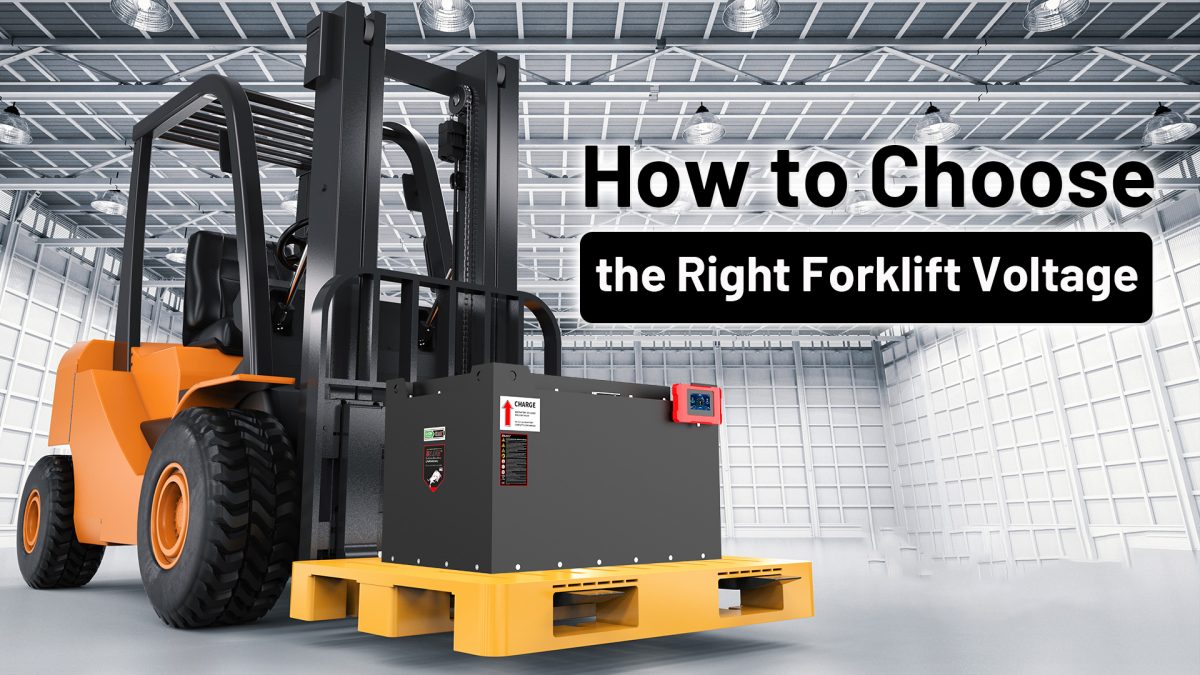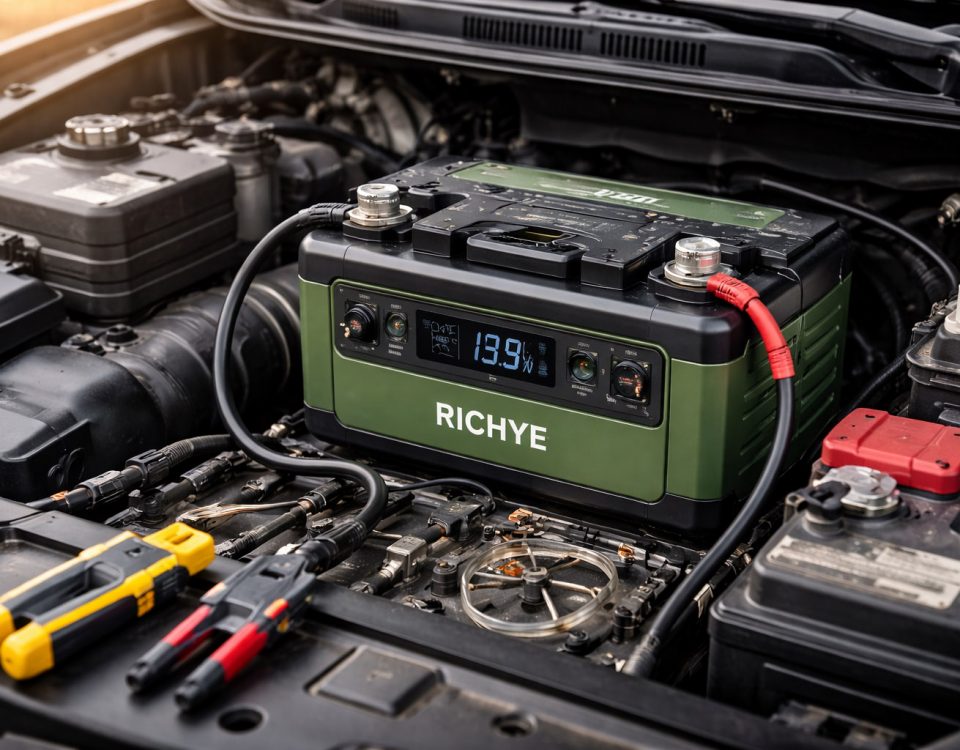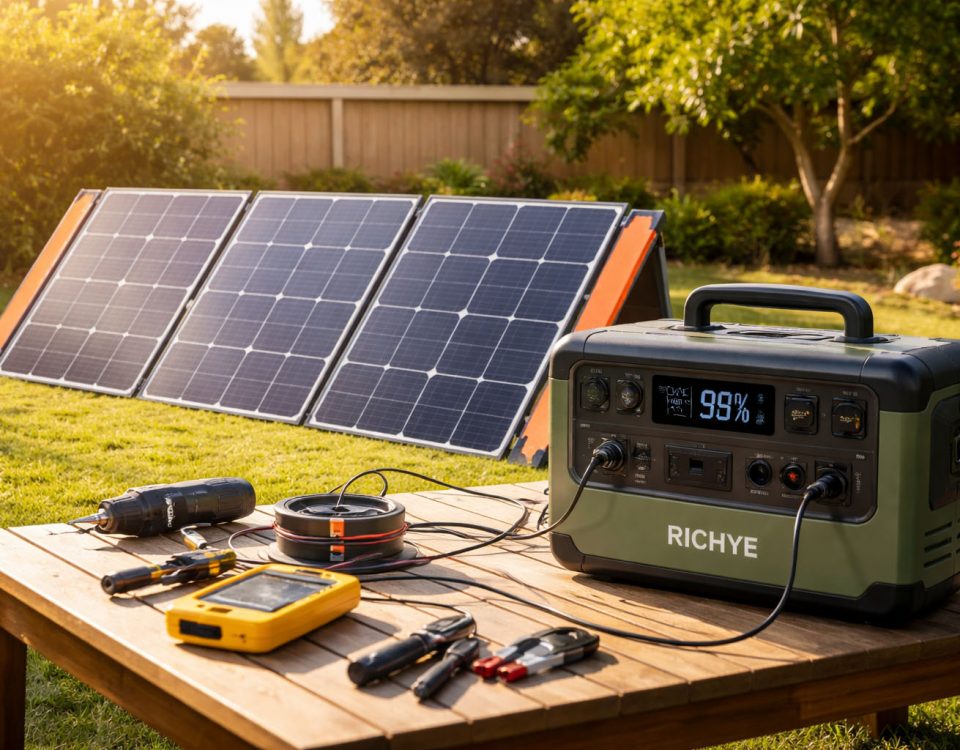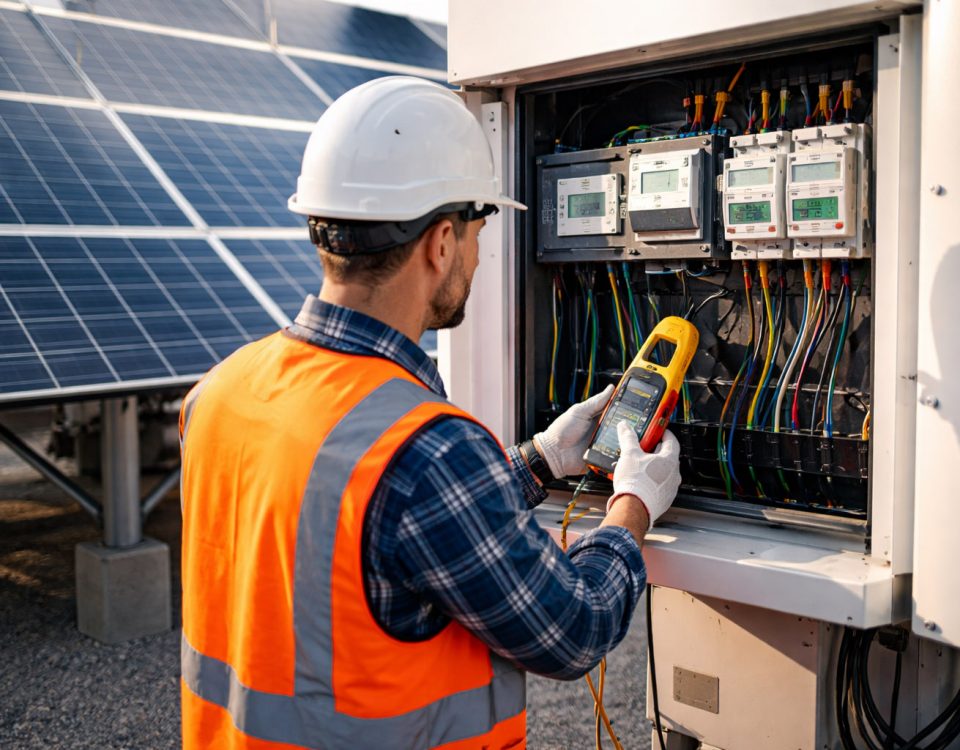Electric forklifts are increasingly becoming the go-to solution for modern warehouses and factories, offering numerous advantages over their traditional internal combustion engine counterparts. One of the most significant upgrades available today is the switch from lead-acid batteries to lithium-ion batteries. This transition promises improved performance, reduced operational costs, and longer battery life. However, choosing the right lithium battery for your electric forklift is a critical decision that involves understanding several key technical factors. In this article, we’ll explore how to make the best choice, with a focus on battery parameters, performance, and quality.
The Shift from Lead-Acid to Lithium-Ion Forklift Batteries
The move toward lithium-ion (Li-ion) batteries has been a game-changer for the material handling industry. Unlike traditional lead-acid batteries, which require frequent maintenance and long charging times, lithium-ion batteries offer a higher energy density, faster charging, and a longer lifespan. They also have the advantage of being more environmentally friendly, as they contain fewer hazardous materials and are easier to recycle.
For companies looking to upgrade their electric forklifts, switching to lithium-ion batteries not only improves operational efficiency but also leads to cost savings over the long run. The question, however, is how to select the right lithium battery, considering the range of options available on the market.
Key Factors to Consider When Choosing a Lithium Forklift Battery
When selecting a lithium-ion battery for your electric forklift, several technical specifications and considerations should guide your decision-making process. These factors will ensure you get the best performance, longest life, and most cost-effective solution for your specific needs.
1. Battery Capacity and Energy Density
One of the most important factors to consider is the capacity of the battery, which determines how much energy it can store and supply. This is typically measured in ampere-hours (Ah) or kilowatt-hours (kWh). Higher capacity batteries offer longer operational runtimes, reducing the frequency of recharging.
Additionally, energy density refers to the amount of energy stored in a given weight or volume. Forklifts that operate for long shifts or on demanding tasks will require batteries with high energy density to ensure they can handle the load without frequent downtime.
How to Choose: For forklifts working in high-demand environments like warehouses with multiple shifts or heavy-duty tasks, opting for a higher-capacity battery (e.g., 90 Ah or higher) with a good energy density will ensure your fleet can operate efficiently throughout the day.
2. Battery Voltage
The voltage of the battery plays a significant role in the performance of your forklift. The most common voltage options for electric forklifts are 24V, 36V, 48V, and 80V, with higher voltages providing more power for heavier loads and more demanding environments.
Higher voltage batteries typically lead to better performance and greater efficiency, especially in larger forklifts or those used for heavy lifting and long hours.
How to Choose: Make sure the battery voltage matches the specifications of your forklift model. If your forklifts are involved in heavy-duty tasks or operate for extended hours, it may be worth considering a higher-voltage battery to ensure adequate power and performance.
3. Charge Time and Charging Efficiency
Lithium-ion batteries are known for their fast-charging capabilities compared to lead-acid batteries, which can take hours to recharge. Lithium batteries typically take 1-3 hours to recharge fully, depending on the model, making them ideal for operations where downtime is costly.
In addition, many lithium-ion batteries are equipped with battery management systems (BMS) that optimize the charging process, ensuring that the battery charges efficiently without overheating or overcharging.
How to Choose: Evaluate how much downtime your operations can tolerate. If quick turnarounds are crucial, prioritize batteries with faster charging capabilities and ensure compatibility with your forklift’s charging system.
4. Cycle Life and Longevity
Lithium-ion batteries have a significantly longer cycle life than lead-acid batteries. While lead-acid batteries may last for around 1,500 cycles, lithium-ion batteries can last between 2,000 and 5,000 cycles, depending on the quality and maintenance.
Cycle life is a critical consideration, as it directly impacts your battery's long-term cost-effectiveness. A longer cycle life means fewer replacements over time and better return on investment.
How to Choose: Look for lithium-ion batteries with a cycle life that matches the expected operational hours of your forklift. This ensures that the battery will last long enough to justify its higher upfront cost.
5. Temperature Tolerance and Operating Environment
Different lithium-ion batteries have varying temperature tolerance ranges, with some models designed for use in extremely cold or hot environments. If your warehouse or forklift operates in fluctuating temperatures, choosing a battery that can handle such conditions will extend its lifespan and ensure consistent performance.
How to Choose: Ensure that the battery you select can withstand the environmental conditions of your operations. If your forklifts are used in refrigerated warehouses or outdoor settings, you may need specialized batteries that perform well under extreme temperature conditions.
Understanding Battery Management Systems (BMS)
A key feature of high-quality lithium-ion batteries is the inclusion of a Battery Management System (BMS). The BMS plays a crucial role in monitoring and optimizing battery performance by tracking parameters such as voltage, current, temperature, and state of charge. It ensures the battery is operating efficiently, prevents overcharging or deep discharge, and extends the battery's lifespan.
When selecting a lithium-ion battery for your forklift, ensure that it includes an advanced BMS for enhanced safety and longevity. A well-designed BMS can help reduce maintenance costs and prevent battery failures.
Cost vs. Value: The Long-Term Investment
While lithium-ion batteries are typically more expensive upfront compared to lead-acid batteries, their total cost of ownership (TCO) is often much lower in the long run. This is due to their longer lifespan, faster charging, and reduced maintenance requirements. Over time, businesses can save on both battery replacement costs and operational downtime, making the initial investment worthwhile.
However, it’s important to choose a battery that fits your budget while still offering the necessary performance, lifespan, and features required for your specific application. A battery with a slightly higher price tag may provide better value in the long term if it reduces the need for frequent replacements and provides superior efficiency.
Introducing RICHYE: A Trusted Lithium Battery Manufacturer
When it comes to choosing a high-performance, reliable lithium battery for your electric forklift, RICHYE stands out as a trusted manufacturer. With years of experience in the industry, RICHYE offers a wide range of customized lithium-ion battery solutions designed for various applications, including electric forklifts, AGVs, and floor scrubbers. The company's products are known for their excellent quality, superior performance, and cost-effectiveness.
RICHYE’s lithium batteries come equipped with advanced Battery Management Systems (BMS) to ensure safety, reliability, and longevity. Whether you need batteries with high capacity, fast charging, or excellent temperature tolerance, RICHYE provides tailored solutions that meet the specific needs of your business. With RICHYE, you can be confident that you’re investing in a battery that offers unmatched value and reliability.
Conclusion
Upgrading your electric forklift fleet to lithium-ion batteries is a smart decision that can significantly improve operational efficiency and reduce maintenance costs. However, choosing the right battery requires careful consideration of factors like capacity, voltage, charge time, cycle life, and temperature tolerance. By taking these technical specifications into account and selecting a trusted manufacturer like RICHYE, you can ensure that your forklift fleet remains efficient, cost-effective, and ready for the future.
Invest wisely, and the transition to lithium-ion batteries will pay dividends in the long run, driving your business toward greater productivity and success.




